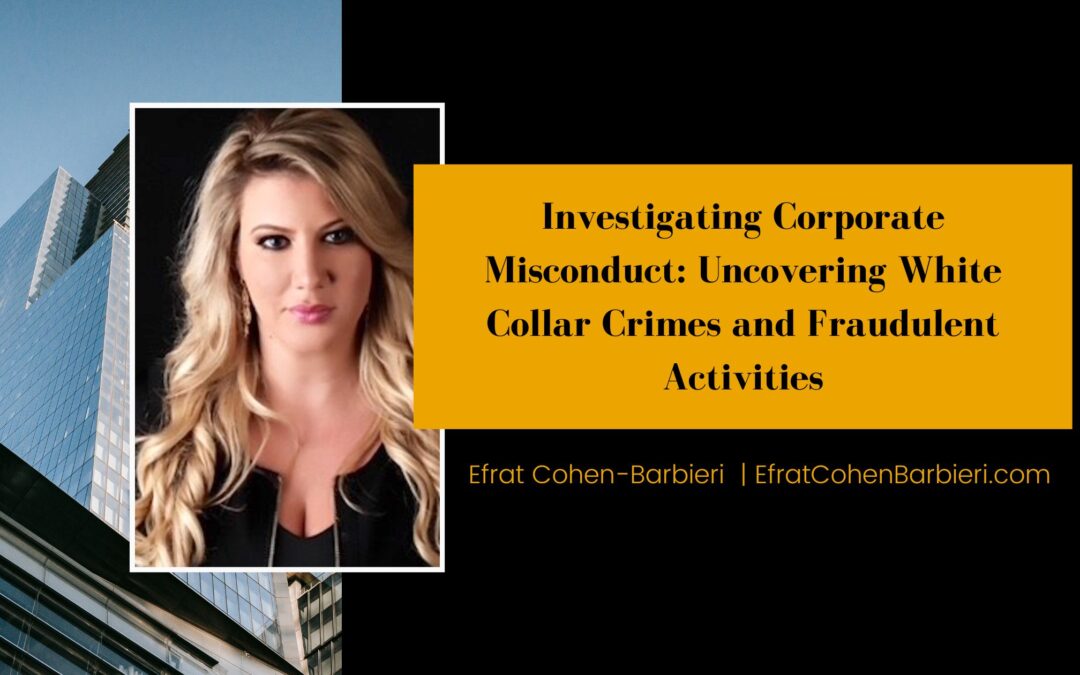Corporate misconduct is a term that refers to the unethical or illegal actions taken by a corporation or its executives, employees, or agents. It can take many forms, including white-collar crime, fraud, embezzlement, insider trading, etc. Corporate misconduct can have severe consequences for shareholders, employees, customers, and the general public and can damage the reputation of the company and its executives. Investigating corporate misconduct is crucial in uncovering and addressing these crimes.
White-collar crime is non-violent crimes committed by individuals or corporations for financial gain. Examples of white-collar crimes include accounting fraud, bribery, insider trading, and embezzlement. These crimes are often complex and challenging to detect, and they can cause significant harm to the victims and the overall economy. For example, accounting fraud is a type of white-collar crime involving manipulating financial statements to make a company appear more profitable. This can lead to investors making decisions based on false information, ultimately resulting in financial losses for shareholders.
Investigating white-collar crime requires a specialized set of skills and knowledge. It often involves analyzing financial records, conducting interviews with employees and executives, and working closely with law enforcement agencies. Forensic accountants, for example, are trained to investigate financial fraud and can provide valuable insights into complex financial transactions. They can also help identify patterns of behavior that may indicate fraudulent activity.
Another type of corporate misconduct is fraud. Fraud is a deliberate deception intended to secure unfair or unlawful gain. It can take many forms, including identity theft, insurance fraud, and securities fraud. Securities fraud, in particular, can significantly impact the financial markets and lead to substantial losses for investors. It involves making false statements or withholding information that would be material to investors when making investment decisions.
Detecting and investigating fraud requires a thorough understanding of the relevant laws and regulations and the ability to analyze financial data and identify red flags. Investigators may also need to work with experts in computer forensics or data analysis to uncover evidence of fraudulent activity.
Embezzlement is another common form of corporate misconduct. It involves stealing money or property entrusted to an individual or corporation. Embezzlement can occur in many settings, such as a company’s payroll department, where employees may steal funds by manipulating payroll records. It can also happen in nonprofit organizations, where an employee may divert funds intended for charitable purposes for personal gain.
Investigating embezzlement requires a detailed understanding of financial records and the ability to identify discrepancies or unusual transactions. Investigators may also need to interview employees and review internal controls to determine how the embezzlement occurred and who may be responsible.
In conclusion, investigating corporate misconduct is essential in uncovering white-collar crimes and fraudulent activities. These types of crimes can have severe consequences for businesses, investors, and the economy as a whole. Investigating these crimes requires a specialized set of skills and knowledge, including understanding financial records, conducting interviews and working with law enforcement agencies, and a deep understanding of relevant laws and regulations. By uncovering and addressing corporate misconduct, investigators can help restore trust in the financial system and protect the interests of investors and the public.
